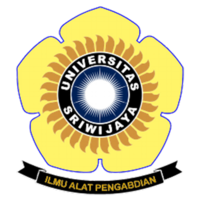INFORMATION MASTERY BY TEACHERS AS A STRATEGY TO SUCCEED IN THE IMPLEMENTATION OF TEACHING AND LEARNING ACTIVITIES
Abstract
Abstract: The objectives of this research are to know trying to master information that can support and make him succeed in teaching and learning activities This research is descriptive qualitative research The sample of this research 108 teacher equivalent high school. The data were gathered by using questionnaire and were analysed by using the mean approach. The findings showed the strategies used by the teachers in information mastery to succeed in teaching and learning activities are understanding teaching materials, reading various available sources, searching for the latest information, trying to find reliable sources, observing all the recent references, studying theories about learning, attending a training, workshop, and seminar, and writing scientific works. In conclusion this data clearly reveal that the main effort taken by the teachers is to deepen their knowledge about teaching materials. However, writing a scientific work in order to widen their horizons and to obtain a lot of information is low so that only few teachers concern about this issue.
Keywords: teachers, information, teaching and learning, student
Full Text:
516-523References
Acher, R., Arcà, M., & Sanmartí, N. (2007). Modeling as a Teaching Learning Process for Understanding Materials: A Case Study in Primary Education. Science Education, doi.org/10.1002/sce.20196, 3 April: 398—418.
An Nahlawi, A. (1995). Pendidikan Islam di Rumah, Sekolah, dan Masyarakat. Jakarta: Gema Insani Press.
Carpenter II, D.M., Crawford, L., & Walden, R. 2007. Testing the Efficacy of Team Teaching. Learning Environ Res, DOI 10.1007/s10984-007-9019-y, 10: 53—65.
EOCD. (2009). Creating Effective Teaching and Learning Environments. Washington DC, American: OECD Publishing.
Essien, E.E., Akpan, O.E., & Obot, I.M. (2016). The Influence of In-Service Training, Seminars and Workshops Attendance by Social Studies Teachers on Academic Performance of Students in Junior Secondary Schools Incross River State, Nigeria. Journal of Education and Practice, 7 (22): 31—35.
Forlin, C. (2012). Future Directions: What is Needed Now for Effective Inclusive Teacher Education? In C. Forlin (Ed). Future Directions for Inclusive Teacher Education: An International Perspective. London: Routledge.
Hackathorn, J., et al. (2011). Learning by Doing: An Empirical Study of Active Teaching Techniques.The Journal of Effective Teaching, 11 (2): 40—54.
Hamali, O. (2002). Pendidikan Guru Berdasarkan Pendekatan Kompetensi. Bandung: Bumi Aksara.
Hanafy, M.S. (2014). Konsep Belajar dan Pembelajaran. Lentera Pendidikan, 17 (1), Juni: 66—79.
Henard, F. & Ringuet, S.L. (2008). The Path to Quality Teaching in Higher Education. http://www.oecd.org/education/imhe/44150246.pdf
Kamamia, L.N., Ngugi, N.T., & Thinguri, R.W. (2014). To Establish the Extent to Which the Subject Mastery Enhances Quality Teaching to Student-Teachers During Teaching Practice. International Journal of Education and Research, 2 (7), July: 641—648.
Mizell, H. (2010). Why professional development matters. United States of America: Learning Forward.
Muhaimin, et al. (1996). Strategi Belajar Mengajar: Surabaya: Citra Media.
Paolini, A. (2015). Enhancing Teaching Effectiveness and Student Learning Outcomes. The Journal of Effective Teaching (JET), 15 (1): 20—33.
Park, C. (2003). Engaging Students in the Learning Process: The Learning Journal. Journal of Geography in Higher Education, 27 (2), July: 183—199.
Retnowati. (2009). Pengamatan Lingkungan Eksternal Organisasi dalam Penggunaan Tehnologi Informasi: Suatu Investigasi Empiris. Jurnal Teknologi Informasi DINAMIK, XIV (1), Januari: 35—43.
Rivaie, W. (2011). Faktor Intelektual yang Menentukan Keberhasilan. Jurnal Pendidikan Sosiologi dan Humaniora, 2 (1): 62—73.
Rosenshine, B. (2012). Principles of Instruction Research-Based Strategies that All Teachers Should Know. American Educator, Spring 2012: 12—39.
Smith, M.C., & Lytle, S.L. (1993). Inside/Outside: Teacher Research and Knowledge. New York: Teachers College Press.
Windschitl, K. (2004). What Types of Knowledge do Teachers Use to Engage Learners in “Doing Science”? ______________ Rethinking the Continuum of Preparation and Professional Development for Secondary Science Educators. A Paper Commissioned by the National Academy of Sciences. Washington, DC: High School Science Laboratories: Role and Vision.
Zaliwski, A.S. (2011). Information – is it Subjective or Objective? Cognition Communication Co-Operation (tripel C), 9 (1): 77—92.
Article Metrics
Abstract view : 808 times516-523 - 491 times
Refbacks
- There are currently no refbacks.
